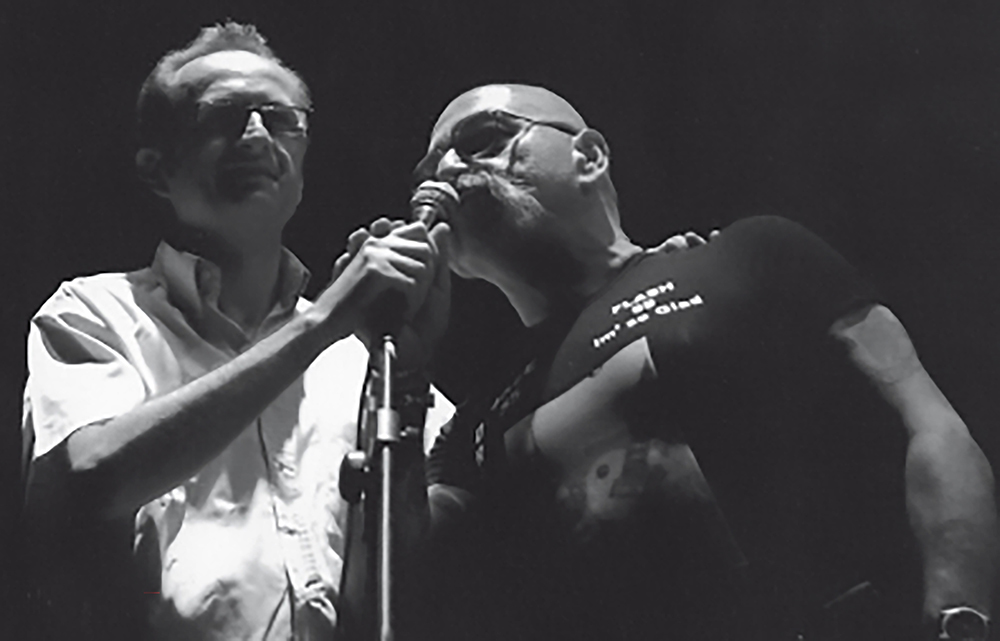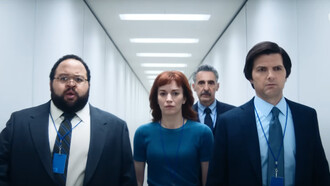During the last 15 years, I followed the birth of two important books: PROG 40 and PROG 50, released by Applausi Publishing in Italy and distributed worldwide.
After reading and consulting the parade of names, artists, events, and records that contributed to changing many people’s lives, it is clear how the role of inventing a new genre was not only the privilege of those few that made it to planetary fame and fortune but also of the many who disappeared after one brief moment—often just recording a single album.
What do the kings of prog (Pink Floyd, Genesis, King Crimson, Rush, Kansas, and Yes) have to do with knights & valets such as After Crying, Gunesh, Pavlov’s Dog, Balletto di Bronzo, and Museo Rosenbach? They share a much-forgotten common denominator: the stage. And it doesn’t matter if this stage is not the same for everyone. It doesn’t matter whether Museo Rosenbach ever had a colossal white brick wall like Pink Floyd or the computerized lights of Genesis; they all had, one way or another, a stage—big or small—to perform on and reveal themselves to the world. Even those one-night stands, born and gone after a single show, still had a stage.
All these artists, sooner or later, required the important work of the handful of invisible heroes defined as roadies—the stage technicians. Yes, technicians. Because ensuring the perfect outcome of a show is not just mere handiwork, it requires a complete vision of each multiple aspect.
To better explore this universe, Libero Robba will present his precious experience as an authentic stage professional—an old-time Turin roadie with a respectable curriculum and, above all, someone who lived through the birth of Italian Prog.
I started my career as a drum roadie, that is, by installing the drum kits on stage. Then I specialized in assisting all the musicians and solving stage issues throughout 3,300 concerts across Europe.
Libero went on tour with names such as Dire Straits, Weather Report, Ray Charles, and B.B. King. During his career, he also worked for great Italian artists such as PFM, New Trolls, Arti & Mestieri, Area, and Banco del Mutuo Soccorso—not to mention his childhood friendship with the members of Procession. His name can be found inside PFM’s double live album of 1981, PerForMance, or you can see him appear in many backstage photos with famous artists.
Dear Maurizio, I would like to recall all the great people who are long gone, like Demetrio Stratos, Franco Mamone, Giulio Capiozzo, Gianfranco Gaza, and the father of all managers, Gianni Sassi—also founder of Cramps Records. These are names in this book that no one should forget for their talent, compassion, availability, and humility. I learned a lot from them.
Too often, the importance of people like Libero is forgotten.
The evolution of this role started during the ‘60s in small clubs, where often the band members would roll up their own sleeves and install the modest instrumentation, perhaps with a couple of guys fixing lights and amplification. Already in the early ‘70s, the job grew to unthinkable levels with increasingly complex set designs (Genesis, Yes, and Pink Floyd) that required real experts to materialize on stage the imaginary and fantastic visions contained in the records and some of the incredible covers.
New professional figures emerged: sound engineer, light engineer, road manager, or road crew manager (coordinating all the roadies, just like Libero Robba, with the responsibility of mounting the stage and assisting the musicians). In fact, in the last few decades, stages have been designed and directed by engineers and architects.
Progressive rock best incorporated and spread this way of living at a concert, a status that in more recent years has also become the way of any artist, even outside the genre. The rich theatrical performances of Peter Gabriel’s Genesis, the Yes album covers painted by Roger Dean and made three-dimensional in concert, Gerald Scarfe’s giant puppets created for Pink Floyd and appearing either real or projected on a 200-by-50-foot wall—these are not magic tricks, but the hard work of technicians like Libero Robba.
 Libero Robba Giancarlo Bertelle 2009.
Libero Robba Giancarlo Bertelle 2009.
To what extent has the music world given credit to these figures?
Libero Robba today is actively unemployed, yet universally known for his generosity. He still lends a hand for free at many concerts in his hometown. The general sense of ingratitude that affects the entourage of the working stage people is immense.
Being a roadie is the lifestyle chosen by dozens of my colleagues who put their passion into a job—their sweat and tears, the fatigue and satisfaction—priceless in terms of money. Of course we are paid, it’s true. But we lead a life that often consists of a 20-hour shift, with working injuries to which a bunch of my very own friends gave their life or health—just to be soon forgotten.
Today I proudly watch the triumphant return of artists whose careers I helped since their beginnings and, with all due respect, I must sadly admit that not many paid the rightful attention to these hard workers without whom the final result would not be possible.
Nowadays, just like before, many young people are thrown on or behind a stage to learn everything and as fast as humanly sustainable—come wind or cold, rain or shine—working very long hours in the weeny times of day.
I, too, have a small experience as a stage technician, so I attend every concert with a very different spirit: while watching my favorite artist perform, I always imagine all those dirty, sweaty men—sometimes overweight from a disorderly life—that still manage to ensure the perfect outcome of every show.
In memory of Franco Savio, Roberto Prizzon, Patrick Germanini, Fernando Scarpa, Mike, Mark, Nick Sizer, Martin, Spartaco, Ciccio, Woods “La Scossa,” Massimo Pacilli “Dott. Bacillo,” Ragno, and Rodrigo Beccari. Some are by now long gone, but we must keep them in our hearts.















